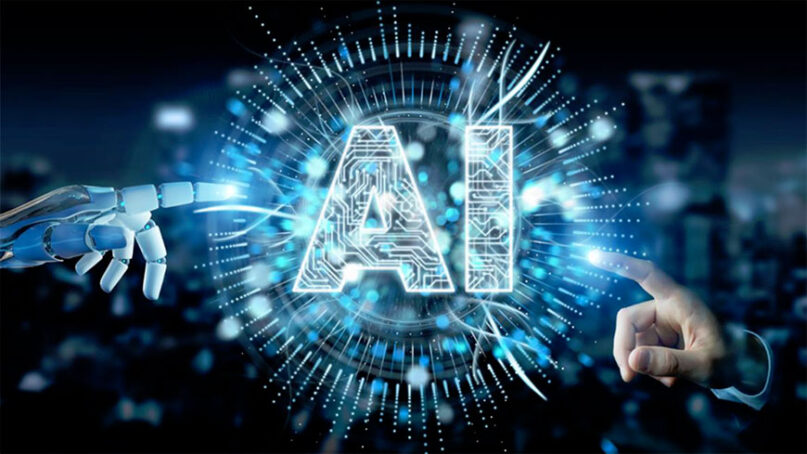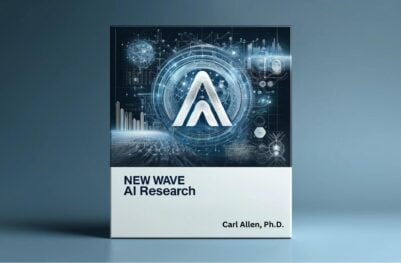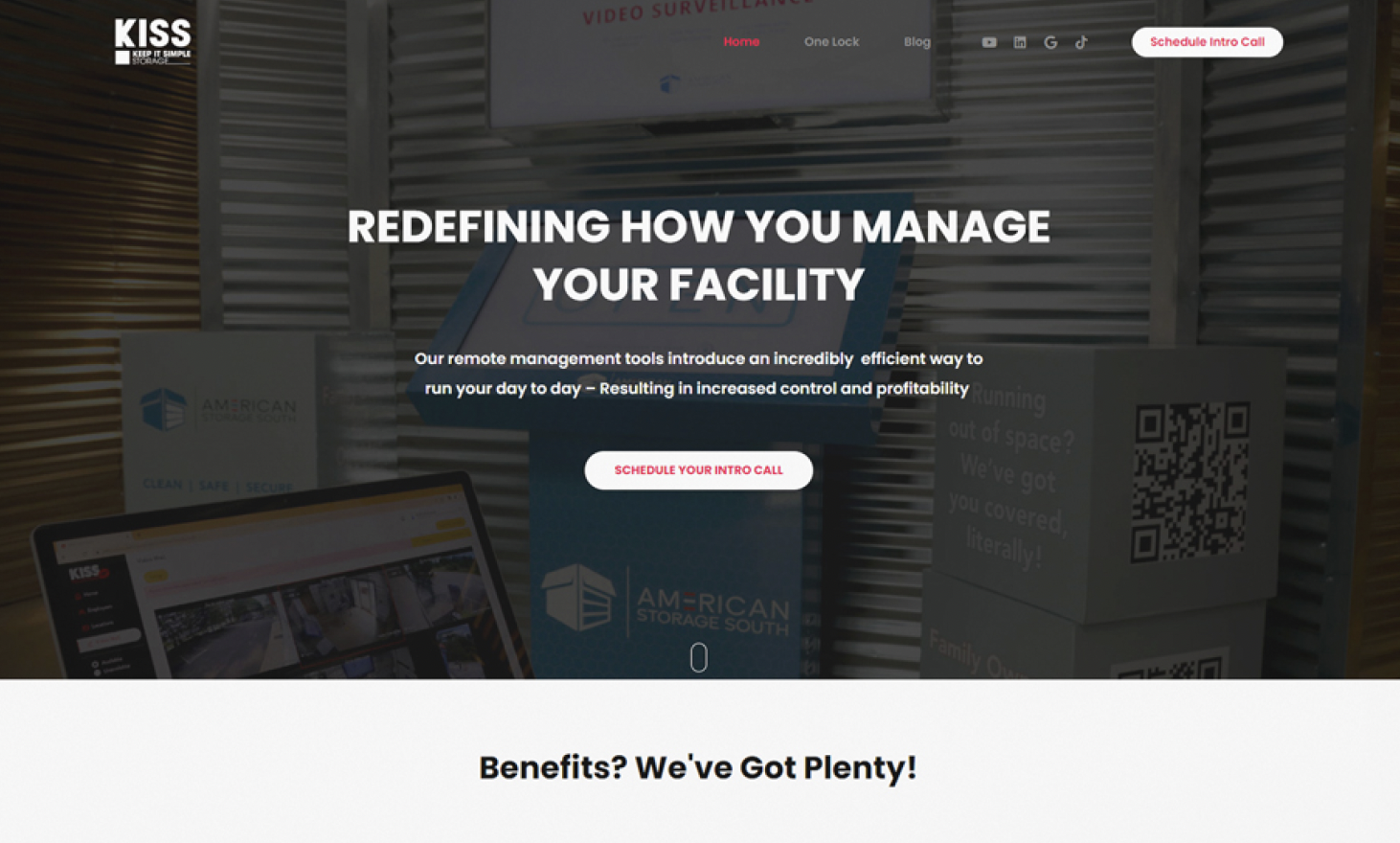- Developers
- Developer Blog
- AI Software Development
- How Is AI Transforming the Product Development Process?

profile

By Faiza Khalid
Verified Expert
5 years of experience
Faiza is a CIS engineer with a keen interest in software development, AI research, and technology writing.
Wondering how AI is transforming the product development process?
Today, artificial intelligence and big data analytics have already rooted themselves in all kinds of business processes. Companies using AI for product development processes have reported higher returns on investments, better efficiency in their processes, and more effective utilization of resources.
The global AI market is growing rapidly and generating billions of dollars a year in revenue. By 2024, the AI market is expected to be worth half a trillion USD.
Product developers and entrepreneurs must start integrating AI into their product development life cycle to stay relevant in a highly competitive global business market.
In this article, we will be discussing ways AI is transforming the product development process by using software development as an example. We will also touch on how, as a software product owner, you can adopt AI in your product development process.
How AI Transforms the Product Development Process?
AI has transformed the entire product development process in various ways. It helps software developers to adopt an efficient approach at each stage in a product development cycle from planning, designing, and development, to testing, deployment, and marketing.
Let’s have a look at how AI is transforming these product development phases and at the technical skills and knowledge required from product developers to implement these AI techniques.
Project Management
As in concept development and testing, AI is helping immensely with product management. AI provides the right tools for product stakeholders and product managers to carry out automated business analysis and to accurately measure project progress.
Machine learning techniques, for example, help in making accurate estimates for business plans including, product development duration, resource allocation, and budget requirements.
AI-based product management tools like Project Insight, Asana, and Trello help with efficient project scheduling and resource allocation.
Read more on product management tools and frameworks in this blog post.
Product Development Strategy
Adopting a suitable product development strategy is necessary for efficient product development and management, especially for complex projects.
Artificial Intelligence is also influencing product development strategies such as Design Thinking and Agile.
The Agile methodology is commonly used by software project managers. The Agile approach focuses on breaking down projects into multiple product development iterations, which helps in facilitating a quicker market release of working software products.

Get a complimentary discovery call and a free ballpark estimate for your project
Trusted by 100x of startups and companies like
It also enables developers to easily incorporate post-launch user feedback and suggestions into the product.
Using similar data, AI can help you in formulating your pre-design product development strategy by providing faster access to initial feedback from customers, etc.
AI can also use data on how other similar products and features are doing in the marketplace or trending on social media to help you decide what works and what doesn’t.
Tools like Splunk enable product developers to use big data for indexing and correlating information. It also helps to generate reports and visual charts to display the AI results.
Read here on how AI is improving the NPD or new product development process. Let’s look a bit deeper at requirement gathering.
Software Requirement Gathering
Software requirements gathering is the first stage in the product life cycle. The process requires a lot of interaction between different project members.
Functional requirements are gathered in the form of user stories to give developers a better idea of product development tasks. Manual requirement gathering is time-consuming and there is always a chance of missing out on important details.
The use of the right AI tool automates the process, thus minimizing time-taking human manual work while ensuring a better analysis of the data. Companies using AI tools have reduced their requirements collection time by 50%.
Developers can plug in AI tools like IBM Watson and ScopeMaster to Jira and Azure DevOps for standalone requirement analysis.
Software Architecture Design
The software design phase maps out the suitable architecture for implementing a software solution. The process requires experience and attention to detail to work out an architectural design that fits the application’s user requirements.
AI software for product design can make the process efficient and more accurate. For instance, the AIDA (Artificial Intelligence Design Assistant) tool examines past software designs to establish the best design for a new app’s user requirements.
Such AI-based tools help to better understand the user requirements and work out a design that meets these requirements.
Software Frontend Design
AI is also influencing how UX/UI designers carry out their work. AI tools like MockPlus and Invision enable them to automate mundane design tasks and accelerate product prototyping through mockups and wireframes.
AI also helps software designers in mapping out a user-centric product design. AI techniques help them to determine how the target audience interacts with a software product. Designers then incorporate these user trends into the product UI design.
Big data and AI models also transform the user interaction experience. AI algorithms monitor user activity on an app and help to customize the available content according to user preference. eCommerce websites and their product suggestion features are prominent examples of automated user experience.
AI recommendation engines help gauge users’ preferences and make a personalized experience for each user. In this way, AI makes the user experience seamless and, at the same time, increases sales for the business.
The use of augmented and virtual reality, AR/VR, further enhances the user experience and how users interact with the product. The augmented reality and virtual reality market worth is predicted to reach 88.4 billion US dollars in the year 2026.
AR tools and platforms like Google ARCore and Apple ARKit help in building AR-based applications through features like facial tracking, environment monitoring, GPS, etc.
Read our blog on how you can introduce AR or VR technology to your business idea.
Automatic Code Generation
AI techniques have been in use in the backend of IDEs for quite some time now to make coding easier and more efficient for programmers. For example, PyCharm IDE for Python and JavaScript programming. This provides AI-based assistance for code completion, error highlighting, code inspection, etc.
Artificial intelligence features further speed up product development by recommending suitable methods and completing method invocations by filling out parameters and arguments while reducing syntax errors.
Software developers easily locate these errors and rectify them in the initial phases, thus saving effort and money.
AI for Rapid Prototyping
AI is now even able to work a step ahead by generating code according to the developer’s requirements. As AI-generated code still, to some extent, requires human monitoring, it is convenient to use AI for building a relatively simple product prototype or minimum viable product (MVPs).
Developers can build basic app functionalities through automated routines and deliver them to users in order to quickly collect their input.
Automated DevOps
AI can extensively automate DevOps procedures. It speeds up the entire process of coding, testing, and delivery of software modules through automation.
AI can help, for example, predict deployment failures by analyzing application logs and environment configurations. It also enables the smooth running of software applications after release by continuously monitoring their performance.
Tools like CodeQL help with the swift tracking of code vulnerabilities during development and deployment.
AI-Powered Software Product Security
AI is capable of enhancing cybersecurity by making use of big data pools. AI models analyze enormous amounts of data and learn to differentiate anomalous data packets from normal data traffic.
AI authentication techniques like CAPTCHA, facial recognition, biometric scanning, etc., lead to timely alerts for cyber threats like credential stuffing and brute force attacks that are commonly used by hackers, better prediction of unknown viruses and malware, enhanced security of users’ personal data, etc.
The biggest use case of AI in the tech industry is cybersecurity, which 52% of respondents stated that they do. Developers can use tools like Targeted Attack Analysis by Symantec or QRadar Advisor by IBM to conduct automatic investigative procedures for vulnerability detection and risk management, thereby accelerating the response actions.
Hire expert developers for your next project
1,200 top developers
us since 2016
Custom AI Models
You can also integrate AI into your product development process by building an ML model suitable for your business problem. For instance, you can build a sales forecasting or supply chain management system. Building a custom AI model calls for expert machine learning development skills.
Platforms like Tensorflow and Apache SystemML help construct neural networks. These platforms provide libraries and tools to build predictive applications and train neural networks. They are compatible with different operating systems and offer easy deployment.
Mobile-friendly ML toolkits like Apple Core ML and Google ML Kit help run AI models on mobile applications, including text recognition, face detection, object tracking, etc.
Apple Core ML specifically helps to develop ML models for the Apple ecosystem. It helps developers build an ML model optimized for on-device performance with low memory and power consumption.
AI development platforms also help software developers to implement deep neural networks for building next-level AI systems like recommendation engines, speech, and voice recognition systems, etc.
Apart from software development, AI also helps product development teams to conduct beta testing of AI applications before product launch.
Beta Testing is one of the steps undertaken in the final stages of the product development process. The final product is made available for customer validation. If the product functionality meets the requirements of the target market, it is made available for all potential customers.
As beta testing gathers user feedback in real-time, it helps to refine the AI model efficiently with user suggestions data. Read more on the benefits of beta testing in AI applications here.
AI in Quality Assurance
Code testing or quality assurance is a crucial product development phase. It ensures that the software product is working according to the set standards and that product-market requirements are met without any errors.
Manual testing requires developers and testers to manually look for bugs and errors and then rectify them.
AI, on the other hand, through different ML-based code testing techniques, automatically analyzes the code against performance metrics, predicts errors, and corrects the coding issues, thereby reducing testing times.
For example, differential testing helps compare application build versions, functional testing tests mobile and web applications’ features, visual testing tests the look and feel of a software product, and declarative testing sets the test goal and lets the AI system run code tests.
Tools like Test.AI help test web applications using AI technology. There is also a test.io plugin available for the Appium tool to test mobile apps.
DeepCode is another AI-powered code generation tool that helps developers with efficient code testing. It integrates with GitHub and helps with code review.
Read our blog for more details on how ML is improving the quality assurance process.
AI in Product Deployment
Using controlled deployment by AI, businesses are not only in a position of giving users correct delivery times for their apps but also to rectify faults in their code before release.
AI models take into account historical data and development team productivity and give realistic timelines for product deployment.
Additionally, AI helps developers reduce on-site failures by raising warning flags beforehand in case of misconfigurations and code bugs, etc.
AI in Product Marketing
An effective marketing strategy is an essential part of a successful product launch. Stakeholders of market-competitive products invest heavily in product commercialization.
Like all other stages of product development, AI can also market your software to its target customers.
AI automates decision-making on the basis of the available data on user behavior and economic trends. Manual analysis of user market data is infeasible for business developers, whereas AI can quickly go through large databases and identify important trends.
For example, by going through a large amount of customer data, AI can help predict the best-selling products, most loyal customers, and high in-demand requirements.
AI is also making waves in digital marketing. The value of the digital marketing industry is predicted to be 182.21 billion US dollars for the year 2028. The latest AI technologies are a major contributor to the rapid growth of the digital marketing industry.
Big online platforms today, like Facebook and Google, use AI for digital advertising. They use AI models to analyze user data such as demographics and interests, etc., to show the most relevant product ads to users.
This AI-powered digital advertisement helps in targeting the right audience, which results in better customer conversion rates.
AI also assists businesses to create an effective email marketing plan. AI algorithms can help you target the right customers with engaging content and personalized campaigns. Moreover, the process is a lot faster than manual email marketing which requires painstaking filtering of potential customers.
Product developers use data analytics techniques using programming languages like R and Python to derive useful insights from AI-driven models. These data insights help in devising effective marketing strategies.
Commonly used tools for performing data analytics include Tableau, PowerBI, and libraries for data handling and analysis include, SciPy, Matplotlib, Scikit Learn, etc.
You can read more on how AI is expected to positively impact digital marketing here.
AI-Powered Customer Support
AI is also improving customer support systems. You can leverage AI to improve your customer support in a number of ways. For example,
Hire expert developers for your next project
- Learn about customer behavior like purchase activity and then offer features to boost it.
- Manage the huge amount of customer queries through automation.
- Using natural language processing through chatbot capability to provide enhanced human-like interaction.
- Seamless integration with CRM helps agents to locate the required information quickly while dealing with customers’ queries and thereby reducing customers’ wait time.
Conversational chatbots are a prominent addition to AI-powered customer service. Instead of manual one-to-one customer interaction, chatbots can accommodate a number of customers at once, 24/7, and all this without ever taking a break.
The chatbot industry will be worth 10.08 billion US dollars in the year 2026. This shows how rapidly businesses are adopting AI-powered chatbots for their business products.
AI technologies like natural language processing, semantic analysis, speech, and text recognition have enhanced the Chabot interaction with customers. AI systems can understand the customer’s problems and quickly propose a suitable solution.
Some of the top chatbot APIs that help developers efficiently build a chatbot include Amazon Lex, Slack Bot API, and Facebook messenger API.
These APIs enable developers to develop chatbots that send direct messages, upload files, and conduct conversations in both text and voice formats.
Read our guide on building a market-competitive chatbot.
How to Integrate AI into Your Product Development Process?
To effectively use AI in product development and gain the benefits of improving sales and securing a better competitive edge in the market, you need to go through the following steps:
- Conduct thorough market research;
- Build an expert AI developers team.
Market Research:
To develop a successful software product using the cutting-edge technology of AI, first, it is necessary to look for a unique product concept. The software market is huge, and AI is now making the product development process feasible for a lot of people.
To stand out, you must offer something new that is unavailable in any existing product.
The beginning step is to find the right product-market fit for your business case. Look for a niche in which you have both interest and experience.
Then, make use of techniques like SWOT analysis and brainstorming for idea generation. Take into account your financial and technical resources when measuring the feasibility of incorporating AI into your new product idea.
Idea screening in this way will help you narrow down your search to one final product development idea using AI.
After ideation and finalizing the product idea, investigate the target market niche. Look at market distributors, their products’ features and pricing, how competitors are using AI in their products, how the target audience is using them, and what new features they would like.
You also need to decide into which stages of the product development process – from design, test, build, market, etc. – you want to integrate AI procedures given your product’s market and business requirements.
Build the Right AI expert Product Development Team
The next step includes an elaborate evaluation of available technical resources. Do you have the right people to implement AI procedures? If you don’t, there is no reason to worry.
You can easily outsource your AI-based product development project to individual freelancers or hybrid software development companies.
These options save you from hiring an in-house software development team that involves a lot of recruitment and office space expenditure, etc.
If you already have a team of software developers and want to enhance it, you can also do this by outsourcing remote software developers according to your project needs.
Freelancers are usually working on multiple gigs at once. You cannot guarantee complete dedication toward your complex AI project from a freelance product developer. Not to forget the risks of hiring an unfit talent due to misevaluation during the interview process.
Software development companies, on the other hand, have a rich pool of talent recruited after a thorough evaluation process. They let you hire developers according to your project requirements.
If you need assistance with project management, most software development companies including DevTeam.Space, offer this too.
Their developers are managed by experienced product developers that help their client-side teams to build a perfect product by adopting a suitable development roadmap and project management approaches.
By following these steps, you would be able to integrate AI into any of your product development stages or build custom AI software for your business.
Ready to Use AI in Software Product Development?
AI is the new electricity when it comes to business products. Postponing AI transformation in your product development process will result in losing the market competition.
DevTeam.Space can help you reap the benefits of AI transformation in your software product development process. Our expert machine learning engineers will help you incorporate AI into your business anywhere it is needed, from AI-based product design, and custom ML software solution development, to creating a chatbot, we have done it all.
Fill out a quick form describing your software project’s initial AI requirements, and one of our technical managers will get back to you to answer your queries in detail.
Top FAQs on How AI Is Transforming the Product Development Process
AI offers a number of tools to effectively implement DevOps procedures including, AI-assisted software module development, automated testing, and rapid deployment. AI tools help in swift user requirement gathering and coding analysis, etc.
MLDevOps is an application of DevOps principles of rapid development, testing, and deployment to machine learning models. The MLDevOps ensure that complicated ML models work seamlessly after software release.
For now, at least, AI has not replaced coding completely. However, there is software built on GPT-3 technology that takes parameter instruction from software engineers and generates code for them.
Test marketing in the form of A/B testing requires a lot of time and resources. It conducts individual test cases for validating the functionality of each software element with multiple sets of audiences.
AI helps by optimizing the process by making tweaks to the testing code. Moreover, you can test multiple use cases and variables at once.

Alexey Semeney
Founder of DevTeam.Space
Hire Alexey and His Team To Build a Great Product
Alexey is the founder of DevTeam.Space. He is award nominee among TOP 26 mentors of FI's 'Global Startup Mentor Awards'.
Alexey is Expert Startup Review Panel member and advices the oldest angel investment group in Silicon Valley on products investment deals.


